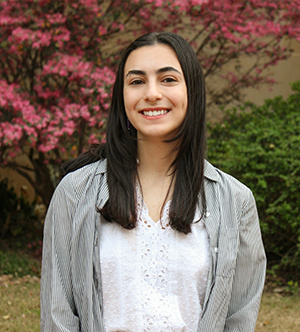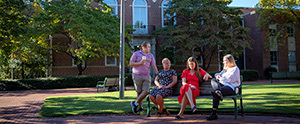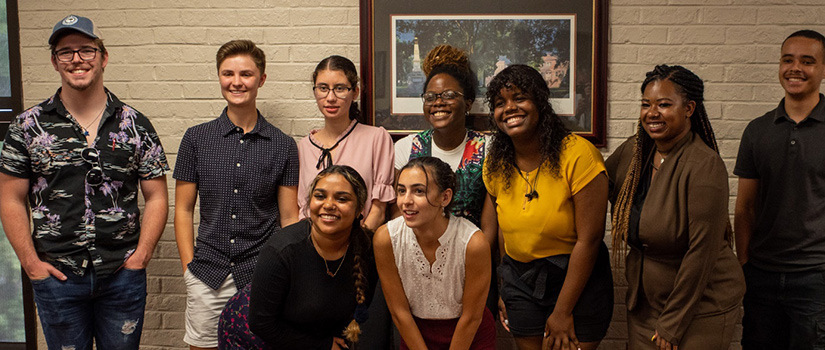When Sophia Shaiman stepped foot on campus in the summer of 2021, she was not yet a student at the University of South Carolina. She came to meet the research cohort she’d been working with for months but had never seen in person.
The Pennsylvania native was one of nine student researchers in the inaugural Criminology and Criminal Justice Research Experiences for Undergraduates (REU) program, led by USC’s Department of Criminology and Criminal Justice. After meeting virtually all summer, the students gathered for the first time on campus to present research on disparities in the criminal justice system.
The REU program is a nationally acclaimed summer initiative, providing undergraduates from across the United States with hands-on research experience, focusing on disparities in the criminal justice system. Participants collaborated with experienced mentors, engaged in cutting-edge research and gained exposure to advanced methodologies.
For Shaiman and many of the undergraduates who participated, it was a first experience doing full-time research. Working 40-hour weeks, with guidance from faculty and graduate students from the department, Shaiman examined the relationship between race, drugs and motherhood identity among incarcerated mothers.

"I couldn’t see myself anywhere else. I am so glad I came to USC, the support here is unparalleled."
- Sophia Shaiman
"Coming into the program, I struggled with the idea of doing research this rigorous as an undergraduate,” she says. “By the end of the program, I felt fully capable in my abilities as a budding researcher.”
Funded by the National Science Foundation and hosted in the College of Arts and Sciences, the three-year long REU’s directive was to equip students with experience examining policy and the court system in preparation for graduate school or to enter the criminal justice field.
Barbara Koons-Witt, principal investigator on the research projects, says the REU’s other objective was to increase participation from underrepresented student groups, including women and first-generation college students.
“As a graduate director, I saw the need to increase diversity among our master’s and Ph.D. students. Diversifying faculty in our discipline really needs to start at the graduate level,” says Koons-Witt, an associate professor of criminology and criminal justice at USC.
Now in her second year as a doctoral student in the Department of Criminology and Criminal Justice, Shaiman points to her time in the REU as a foothold in her academic research career. She also credits the program and its faculty as the reason she applied to USC for graduate school.
“I couldn’t see myself anywhere else,” she says. “I am so glad I came to USC, the support here is unparalleled.”
A Presidential Fellowship recipient, Shaiman is currently working on several ongoing projects, research she's built from her work in the REU and has continued collaborating with faculty mentors, Kaitlin Boyle and Barbara Koons-Witt.

Learn more about USC's Criminal Justice program
This past summer, Shaiman returned to the REU as a graduate mentor to up and coming criminology researchers. In the final year of the program, they explored the views of courtroom actors on domestic violence case processing.
“Having been in the shoes of an REU student just two years prior, I was excited to help this cohort foster their own self-efficacy as student researchers. During the presentations that closed out the summer program, the students were on top of it—they presented our project with so much confidence. It felt like all my hard work had paid off.”




